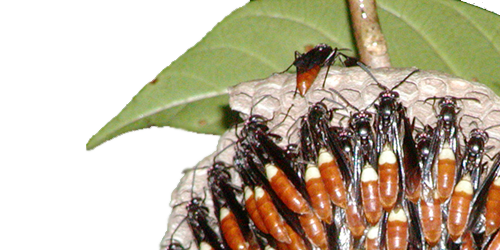In this recent blog post, I discussed how my recovery after stem cell transplant has been much faster than average, and there are probably many reasons why that might be. No doubt the fact that my donor’s genetic markers matched my own perfectly—well, the genetic markers that hospitals check were a perfect match, anyway. There are literally hundreds of minor proteins that immune systems use to determine if cells are self or not. But maybe many of those were matched more than average, just by chance. I know I’m not out of the woods just yet, but there are some other possible reasons for my rapid recovery so far.
Greg and I are fortunate that he rarely needs to go to an office. Greg is a computer programmer, web designer and database manager; he has to work in an office about five days a year, and he goes to work-related retreats and conferences a couple of weeks a year. Otherwise, he’s at home. As a result, his exposure to infectious agents that in me might cause life-threatening illness is extremely limited. Most people don’t enjoy this situation, and so I’m sure the average person undergoing stem cell transplantation is exposed to many more infections than I have been.
But Greg and I have been extremely diligent as well. We’ve taken extreme measures to guard against infection. We’ve not allowed anyone in our house. All food, gifts, and mail is wiped down completely with bacteria- and virus-killing chemicals. (Yes, these are nasty . . . and that’s the point: Kill or be killed.) We got a high-end HEPA filter used in hospitals and endorsed by the American Lung Association. And these measures are all in addition to the regular extreme rules about cleaning, washing clothes, washing dishes, and such. And of course, I was a virtual hermit the entire time (with a couple of approved exceptions, when we walked in the park with friends).
Maybe all of this was overkill, or neurotic, or unnecessary. I know our lead nurse thought so; she promoted much more lax precautions. We didn’t buy what she was selling, however. Neither did my physician.‡ And even if my physician had agreed that these extra steps were a waste of time, I would’ve ignored him. If ever there was a time for overkill, I’d say this has been that time. When it’s time for my nurse’s stem cell transplant, she can be just as lax as she wants.
I have also been exacting in my drug schedule, and Greg has helped a lot with that. And we’ve learned about the drugs I’m taking so we can play a role in my care. That has been very important; on three separate occasions, my physician has prescribed a drug, and the wrong dose. This has happened every single time I have undergone cancer therapy (and I’ve had a lot of cancer therapy). They screw up the dose, and we’re the ones who suffer. I learned this lesson during my days of AIDS activism: Watch the physician’s every move and challenge when necessary; physicians are the top of the hospital’s class hierarchy, and no one else can challenge their actions (a stupid, archaic system that harms only one person: the patient).
Maybe our extreme safety measures had nothing to do with my unusually rapid recovery after the transplant. Maybe my insistence that the nurses gown, and wash their hands in addition to using ethanol gel, and use sterile technique in all their dealings (especially when accessing my chest port) played no role in my acquiring no nosocomial infections, but I’ll bet it did. The items on this list of things I insisted of my nurses are all things they normally never do, and I had to fight to get them to do them (as I always do). I rarely see nurses wash their hands, and when I’ve asked them to do so, they say the ethanol gel is enough. But of course nurses rarely use enough gel (research shows you have to use a lot), and the ethanol has to evaporate entirely (leaving dry hands) in order to kill microorganisms, and nurses rarely wait for this. And of course, washing hands plus using ethanol gel would be better than either precaution alone. Even the infectious disease physician on my team said these measures, including sterile port access, were not important, despite solid evidence to the contrary. In arguing with me, that same infectious disease physician repeatedly said that the infection rate in the cancer infusion bay was “acceptable.” That rate, by the bye, is three percent for blood infection; I wonder how many people have to get sick with blood infections before he’d consider the rate unacceptable? Four percent? Five?
In any event, I’d be willing to bet that all these things Greg and I have done—keeping away from people, wiping down all the groceries, learning about my disease, and demanding excellence from the hospital staff and physicians—surely all of these have had a huge impact on my health. I’m sure some luck was involved, too. So some of the cards were dealt to us by chance, but we dealt some of the cards, stacking the deck in our own favor.

























